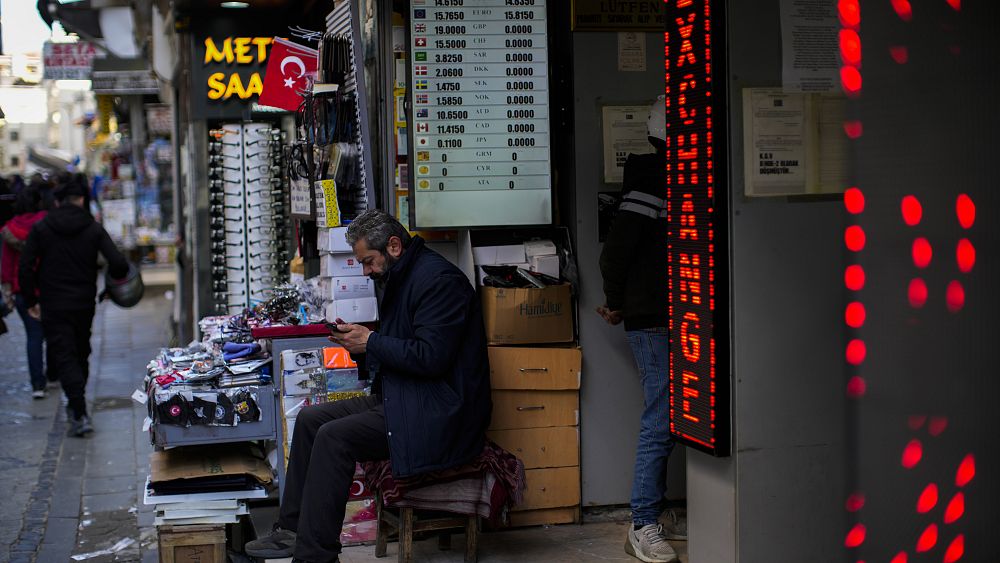ECHR says Turkey failed to comply with ruling to release philanthropist
People take part in a protest against a Turkish court decision that sentenced philanthropist Osman Kavala to life in prison over trying to overthrow the government in Istanbul, Turkey, April 26, 2022. REUTERS/Umit Bektas
Register now for FREE unlimited access to Reuters.com
ISTANBUL, July 11 (Reuters) – Europe’s top rights court said on Monday Turkey had not complied with a ruling that called for the release of philanthropist Osman Kavala, moving further in a process that could lead to Ankara’s suspension from the Council of Europe (CoE).
The Committee of Ministers of the CoE, which oversees the implementation of the European Court of Human Rights (ECHR) rulings, referred the case back to the court in February.
Kavala, who has been in jail for nearly five years, has since been convicted of attempting to overthrow the government and was sentenced to life in prison without parole in April.
Register now for FREE unlimited access to Reuters.com
Seven others were sentenced to 18 years for aiding him in what critics said was a political trial aimed at criminalising nationwide demonstrations in 2013, known as the Gezi protests, the biggest popular challenge to then-premier Tayyip Erdogan.
The Grand Chamber of the ECHR ruled on Monday that Turkey had violated the European Convention on Human Rights by not releasing Kavala in line with the court’s previous ruling.
The court said the new indictment brought against Kavala after the ECHR ruling in Dec. 2020 did not contain any substantial facts and that “the investigating authorities had once again referred to numerous acts which were carried out entirely lawfully”.
It added that Kavala was still in detention despite three decisions for his release and one acquittal, ordering Turkey to pay him 7,500 euros ($7,600).
The Turkish Foreign Ministry said the ruling was disappointing and it expected the Committee of Ministers to act without bias and with common sense during the following proceedings.
The ECHR ruled more than two years ago that Kavala should be released immediately and said his detention served to silence him, but Turkish courts have kept him in jail.
The ECHR’s ruling on Monday is the latest step in the so-called “infringement proceedings” which could lead to Turkey’s suspension from the CoE, of which it is a founding member.
As the next step in the process, the Committee of Ministers will decide on what measures to take as a result of Turkey’s failure to comply with the ECHR ruling.
Legal experts say Turkey’s removal from the CoE would lift the protection afforded on citizens by the European Convention on Human Rights as well as the ECHR.
Erdogan, who is now president, has said Turkey will not respect the CoE if it does not respect rulings by Turkish courts. He also said the ECHR ruling on Kavala does not apply after he was convicted.
The Gezi trial was seen as symbolic of the crackdown on dissent under Erdogan’s rule, as well as the use of the judiciary to punish his opponents. Erdogan and his AK Party say Turkish courts are independent.
($1 = 0.9898 euros)
Register now for FREE unlimited access to Reuters.com
Reporting by Ali Kucukgocmen and Tuvan Gumrukcu
Writing by Ezgi Erkoyun
Editing by Catherine Evans
Our Standards: The Thomson Reuters Trust Principles.

/cloudfront-us-east-2.images.arcpublishing.com/reuters/HYOH7GFMF5NVNN3NNNO7BWY2GY.jpg)

